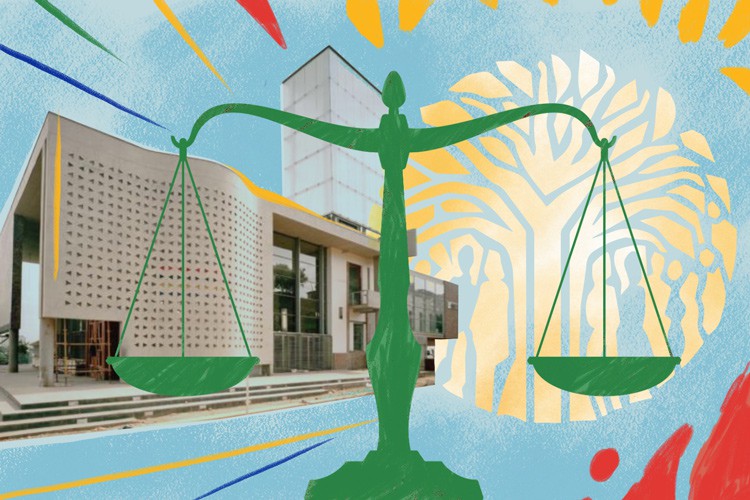
17 July 2023
Late judgments are a serious problem in the South African justice system. Illustration: Lisa Nelson
For years we’ve been reporting the problem of late judgments. It’s official policy that judges have to hand down their rulings within three months of reserving judgment at the end of a hearing.
But as we’ve repeatedly reported, hundreds of judgments don’t get delivered for six months or more. Some judgments are years overdue. Last week we reported about a judgment handed down three years after being reserved.
The Office of the Chief Justice publishes reports on late judgments. But these reports are irregularly published and possibly incomplete because the list of reserved judgments depends on an honour system.
Today we’re launching a very simple system to track late judgments and help hold the judiciary to account. Here is how it works.
If you’re a lawyer or litigant in a case that has been reserved, please let us know using this simple form:
https://www.groundup.org.za/judgment/
Use the same form to let us know when the judgment has been handed down.
We will not share your identity with anyone.
We’ll verify the information you provide and use it to keep track of reserved judgments, which are listed here:
https://www.groundup.org.za/judgment/list/
The list of judgments can be sorted and filtered by various criteria, such as judgments that have been reserved longer than three months or six months.
We’ll use this data to regularly report on the status of reserved judgments. Any journalist, lawyer or researcher is welcome to use the information too.
We understand that there are many reasons why so many judgments are delivered late. But we hope that by having near real-time, publicly available information on late judgments we can create a further incentive for judges to deliver on time or to explain why a judgment has taken longer than the benchmark. This can only work if people involved in court cases alert us when judgments are reserved and handed down.
Together we can end the problem of late judgments.